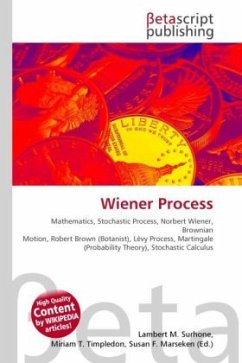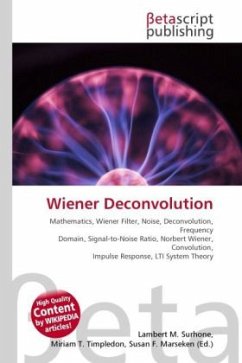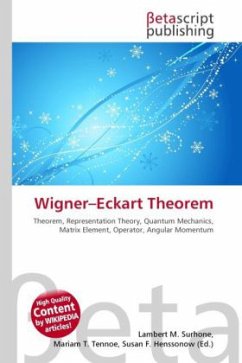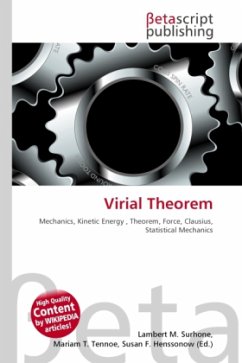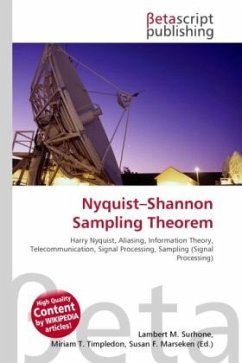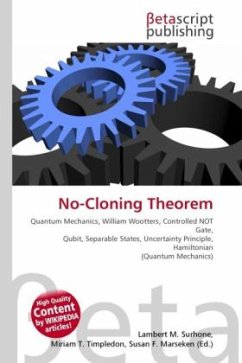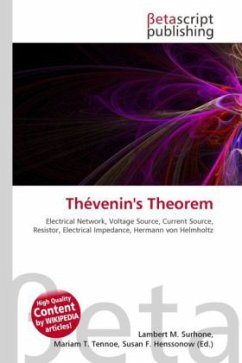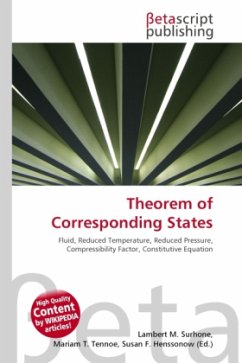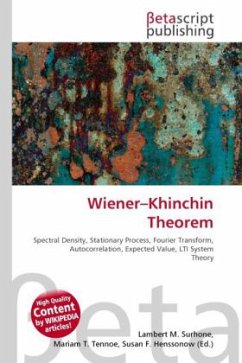
Wiener Khinchin Theorem
Versandkostenfrei!
Versandfertig in 6-10 Tagen
23,99 €
inkl. MwSt.

PAYBACK Punkte
12 °P sammeln!
High Quality Content by WIKIPEDIA articles! The Wiener Khinchin theorem (also known as the Wiener Khintchine theorem and sometimes as the Wiener Khinchin Einstein theorem or the Khinchin Kolmogorov theorem) states that the power spectral density of a wide-sense-stationary random process is the Fourier transform of the corresponding autocorrelation function.The theorem is useful for analyzing linear time-invariant systems, LTI systems, when the inputs and outputs are not square integrable, so their Fourier transforms do not exist. A corollary is that the Fourier transform of the autocorrelation...
High Quality Content by WIKIPEDIA articles! The Wiener Khinchin theorem (also known as the Wiener Khintchine theorem and sometimes as the Wiener Khinchin Einstein theorem or the Khinchin Kolmogorov theorem) states that the power spectral density of a wide-sense-stationary random process is the Fourier transform of the corresponding autocorrelation function.The theorem is useful for analyzing linear time-invariant systems, LTI systems, when the inputs and outputs are not square integrable, so their Fourier transforms do not exist. A corollary is that the Fourier transform of the autocorrelation function of the output of an LTI system is equal to the product of the Fourier transform of the autocorrelation function of the input of the system times the squared magnitude of the Fourier transform of the system impulse response. This works even when the Fourier transforms of the input and output signals do not exist because these signals are not square integrable, so the system inputs and outputs cannot be directly related by the Fourier transform of the impulse response.




